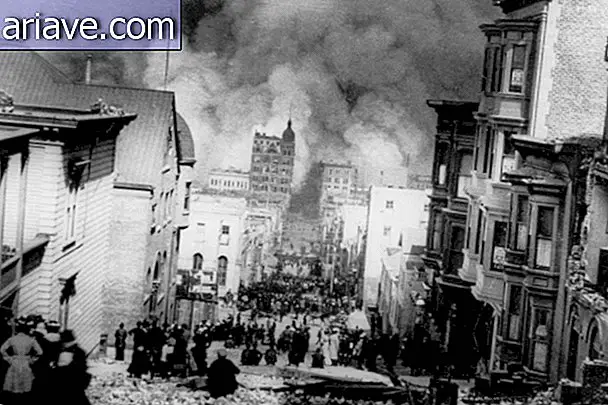The most epic and significant battles in history
You already had the opportunity to check here at Mega Curioso what were the bloodiest and even the most absurd battles in history. Now the Live Science folks have put together a list of the most epic battles of all time, which we will present to you below.
These were the most significant confrontations in the history of mankind and marked their epochs, setting a new course for their civilizations and world order. Check it out below.
8 - The Battle of Marathon

In the year 490 BC, Greek citizens confronted the Persian invaders sent by King Darius I. The Persians took ships with 20, 000 infantry and cavalry to Marathon to punish the Athens Greeks for supporting the Ionians, who had rebelled against them earlier.
Although outnumbered, the Athenians faced the attack head on, causing the Persian army to panic and flee back to their ships. More than 6, 000 Persians were killed, with fewer than 200 men among the Greeks, according to Herodotus.
The battle also gave rise to the story of Phaedipedes, who reportedly ran about 40 kilometers between the Marathon battlefield and Athens to warn the city of the Athenian army's victory over the Persians and died of exhaustion after completing the mission.
7 - Battle of Cajamarca

In the territory where Peru is today, Spanish conqueror Francisco Pizarro and his troops ambushed Inca ruler Atahualpa in a surprise attack on November 16, 1532. The death of thousands of unarmed Incas sparked a long struggle between the Spanish and the Inca
It all happened when, after months of diplomacy and espionage, Pizarro invited the Inca ruler to the Cajamarca square. Atahualpa agreed, but it took 80, 000 unarmed people to show goodwill.
Meanwhile, Pizarro's men hid in the city. A friar on the Spanish side offered the Inca leader a bible (which Atahualpa didn't even know how to open it) and asked him to accept Christianity. The ruler refused, then the Spaniard gave an order to attack the unarmed contingent of the Incas and Atahualpa was captured and eventually executed.
6 - Battle of Hastings

On October 14, 1066, Norman invader William the Conqueror defeated and killed King Harold II at Senlac Hill near Hastings, England. It all began when William was promised that the king, Edward the Confessor, had promised him the English throne in 1051. But on his deathbed, Edward changed his mind and named in his place the noble Harold Godwinson.
Obviously furious, William joined forces to claim King Edward's promise and killed Harold, the newly appointed king, and then departed for London, which his surrendered to the Norman invader. King William I was crowned on Christmas Day in 1066 and the battle marked the end of Anglo-Saxon rule in England.
5 - Siege of Orleans

The French overcame the siege of Orléans, France, in May 1429, largely because of Joan of Arc, a teenage peasant whose visions of God led them to fight in the Hundred Years War.
The English seemed to have been overcoming the siege of the city for almost six months, but when fearless Joan appeared in the city, gathering citizens and suggesting tactical decisions, to join the battle as well, the French resumed the banks of the Loire River and defeated the invaders. Many say the battle saved France after centuries under English rule.
4 - The Battle of Tours

In the year 732, an invading Muslim army, led by the Moorish-Hispanic general Abd-er Rahman, crossed the western Pyrenees area and reached Tours, France, hoping to expand the invasion to Europe.
But Charles Martel led a French army that confronted the invaders. French forces captured and killed the Moorish leader, forcing the invading army to withdraw. Many scholars have argued that if Abd-er Rahman had won the battle, Islam would have become the dominant religion in Europe.
3 - Surrender in Yorktown

On October 19, 1781, British forces led by General Cornwallis were defeated at Yorktown, Virginia, after being surrounded by the French naval fleet at sea and US forces on land.
During the Revolutionary War, the colonizers had become a very effective combat machine under the leadership of George Washington. But this battle led the British to surrender and withdraw from the American colonies, paving the way for the birth of the United States of America.
2 - Battle of Stalingrad

The nearly six-month siege of Stalingrad was one of the most crucial (and dramatic) events in World War II. In August 1942, Adolf Hitler and his troops bombarded the industrial city (now known as Volgograd) with air strikes and infantry on the attack.
The Russian army enlisted volunteer citizens, some without weapons, to fight the invaders. After about three months, the Germans reached the banks of the Volga River, but the Russians mounted a counterattack that arrested the German army in the city.
The strategy was successful and the Red Army was able to dominate 300, 000 members of the German contingent - already suffering from the weather and hunger. They surrendered against their will in February 1943. Nearly two million people died in the siege.
1 - Normandy invasion

The invasion of Normandy by Allied forces on the so-called D-Day in 1944 marked the beginning of the decline of the Nazi empire on the western front.
American, British, French, and Canadian forces launched a water attack on June 6, 1944, with air and sea bombing, along with parachute troops. By July, more than a million men had landed on the French coast, retaking much of the country and forcing the Germans to retreat.
* Originally posted on 23/01/2014 .
***
Do you know the Mega Curioso newsletter? Weekly, we produce exclusive content for lovers of the biggest curiosities and bizarres of this big world! Register your email and do not miss this way to keep in touch!











